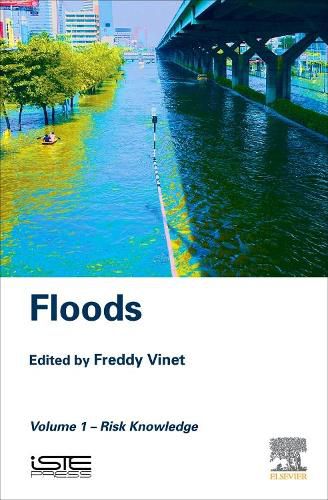Readings Newsletter
Become a Readings Member to make your shopping experience even easier.
Sign in or sign up for free!
You’re not far away from qualifying for FREE standard shipping within Australia
You’ve qualified for FREE standard shipping within Australia
The cart is loading…






In the past thirty years, knowledge on flooding has greatly increased by moving away from purely hydrological and hydraulic science and opening up to other disciplines such as economics or human and geographical sciences. It is as part of this multidisciplinary approach that this book proposes a review of current knowledge on flood risk. It starts with the ever-increasing impact of flooding in order to conceptualize and understand the constituents of risk. Although risk knowledge in modeling methods or naturalist approaches remains essential, it is further developed by the fields of economics, human sciences, geography, environmental psychology and history. This integrated approach to flood risk contextualizes current conclusions on the eventual effects of climate change by showing that human factors are of paramount importance in understanding the process of risk production .
$9.00 standard shipping within Australia
FREE standard shipping within Australia for orders over $100.00
Express & International shipping calculated at checkout
In the past thirty years, knowledge on flooding has greatly increased by moving away from purely hydrological and hydraulic science and opening up to other disciplines such as economics or human and geographical sciences. It is as part of this multidisciplinary approach that this book proposes a review of current knowledge on flood risk. It starts with the ever-increasing impact of flooding in order to conceptualize and understand the constituents of risk. Although risk knowledge in modeling methods or naturalist approaches remains essential, it is further developed by the fields of economics, human sciences, geography, environmental psychology and history. This integrated approach to flood risk contextualizes current conclusions on the eventual effects of climate change by showing that human factors are of paramount importance in understanding the process of risk production .